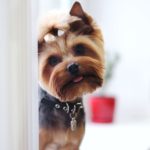Have you ever noticed your dog get anxious or uneasy when you turn off the lights for a quick evening nap or in that unnecessarily lit hallway? So, Are Dogs Afraid Of The Dark? This question is more common among dog owners than you might think.
Read on for a list of possible reasons your dog is afraid of the dark.
Are Dogs Afraid Of The Dark?
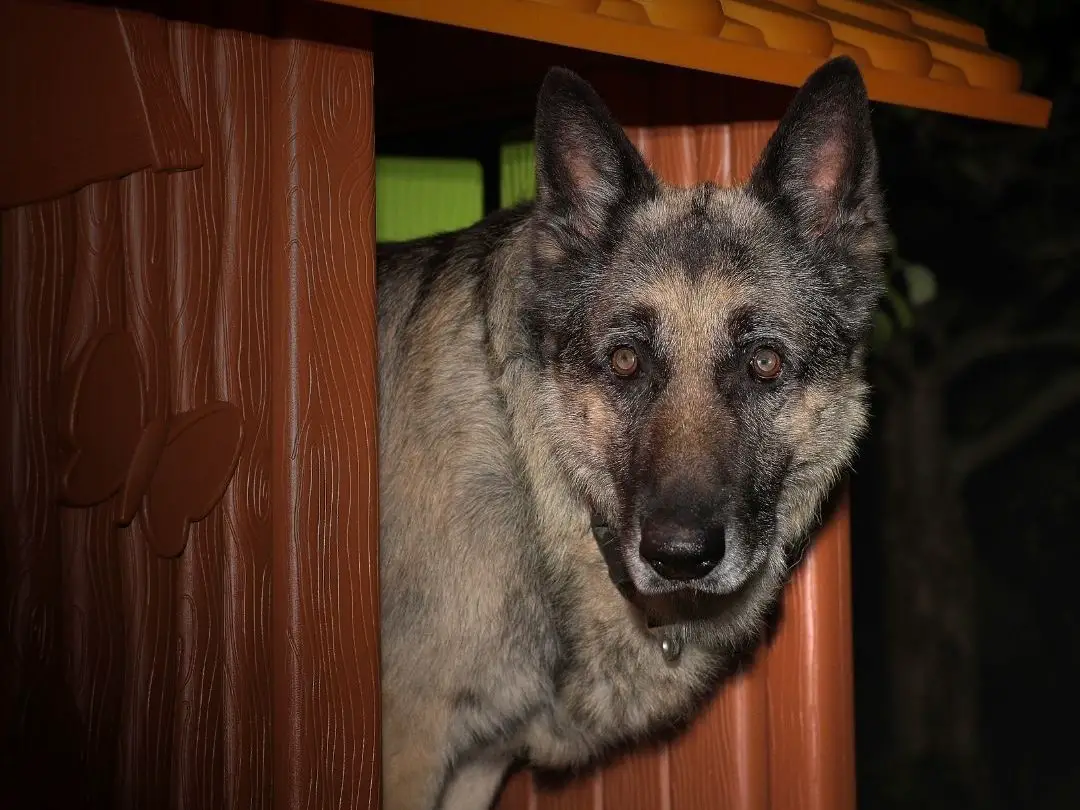
Dogs aren’t inherently afraid of the dark: in fact, their eyes are more light-sensitive than our own, meaning that they can see much better in dim light than us. In all likelihood, your dog will not be clinically diagnosed with nyctophobia. Nyctophobia is basically the fear of night or darkness in dogs.
Some dog breeds may be more alert at night, which you may mistake for fear of the dark. German shepherds, for example, are strong and alert dogs.
Why Are Dogs Afraid Of The Dark?
There are many reasons behind some dogs’ ill-at-ease behavior at nighttime. Some of them include:
1. Nightmares Or Past Traumatic Experiences
Perhaps your dog has had some rough nights as a puppy. This may include being attacked in the dark or seeing and hearing explosive firecrackers on an innocent stroll after sunset. Such experiences can make your dog associate darkness with bad, hurtful events.
2. Deteriorating Eyesight As They Age
Many dogs’ eyesight takes a turn for the worse as they grow older. Worsening eyesight can be an immensely frustrating and dispiriting experience. Studies have shown that poor eyesight affects dogs even more in the dark.
Since fear of the darkness rarely ever affects dogs, it is necessary to rule out any vision problem before considering a psychological aspect.
3. Separation Anxiety
If your dog is particularly clingy and depends on your physical presence for comfort, perhaps, a prolonged separation or a longer-than-usual work trip has made him anxious and vulnerable.
Your pupper may then react to being put in his bed by showing signs of distress and anxiety.
It’s a good idea to take separation anxiety into account before considering fear of the dark. Read more about it here.
Do Dogs Get Scared At Night?
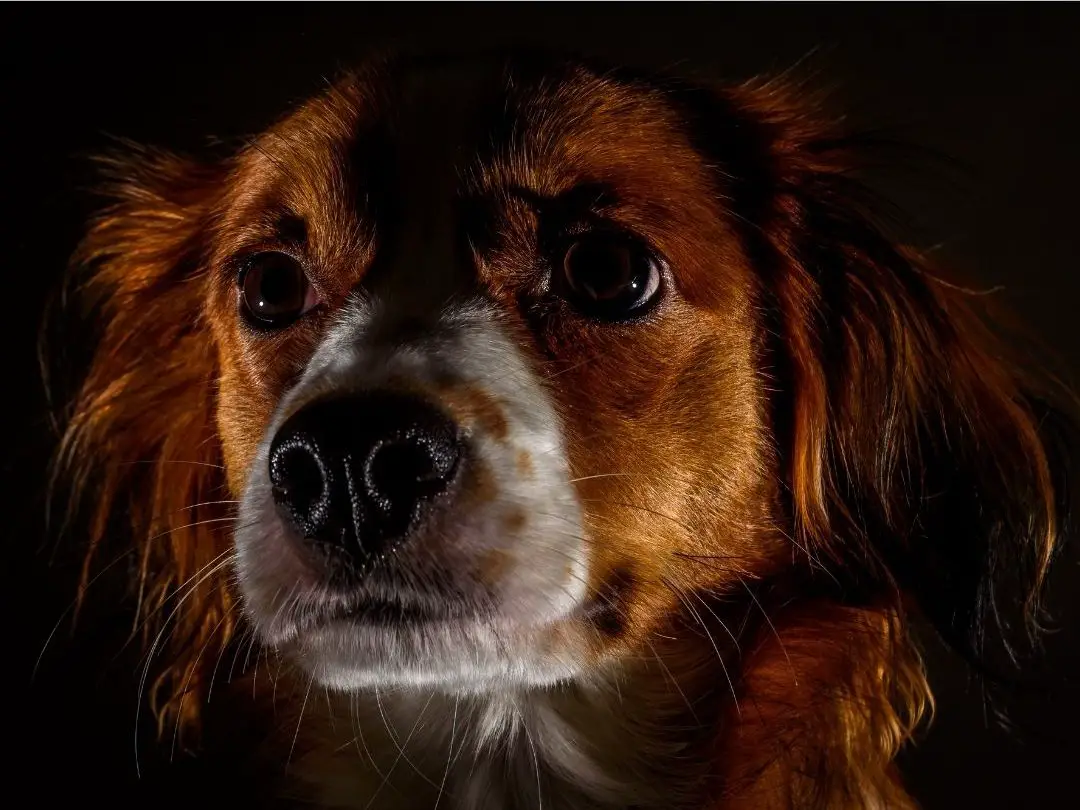
Characteristically, dogs have better night vision than human beings; they are not instinctively afraid of nighttime.
However, exceptions are always there. So, if your dog gets scared at night, then you can always use a light-up collar for your dear dog. This will glow in the dark, and provide some sense of comfort to your dog.
Should You Leave A Light On For Your Dog At Night?
It is not necessary to leave a light on for your dog at night. However, if you have an anxious dog, providing some illumination at night can bring comfort to him.
Also Read: Which Are The Best Chew Proof Blankets For Your Dog?
Do Dogs Know When Humans Are Sleeping?
Because dogs primarily rely on body language to understand the world around them, they are well aware of when their humans are sleeping.
Some dogs can even identify when their owners are sick or worried— your dog can very well identify if you are sleeping.
Why Does My Dog Steal My Spot When I Get Up?
So your dog does a few twirls before settling into that warm spot you left when you got up? He is most likely enjoying your scent and the cozy warmth you left behind.
The downside of it is separation anxiety. Observing your dog’s facial expression and body language can tell you if sitting in your spot provides him with a sense of security.
Why Is My Dog Acting Like He Is Seeing Things?
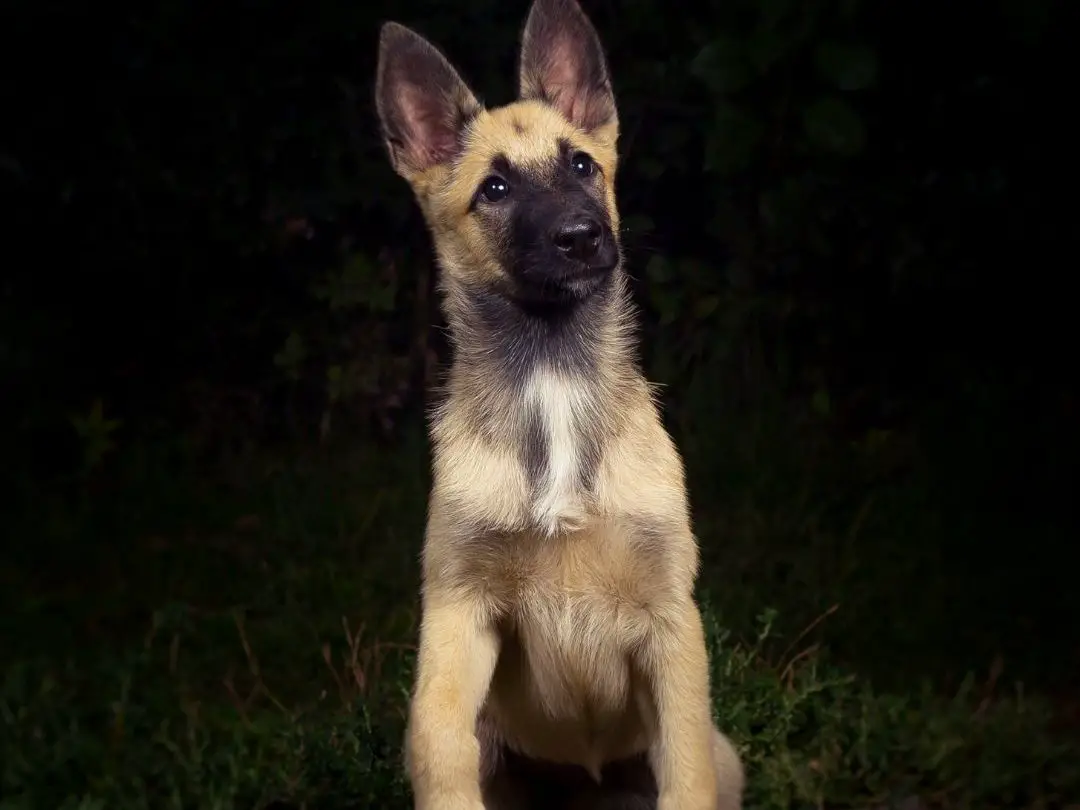
If your dog is acting like he is seeing things, it is most likely due to a neurological disorder.
Here’s a list of other possible reasons:
1. Fly-Snapping Syndrome
Your dog could have Fly-snapping syndrome, characterized by your dog suddenly snapping in the air while looking straight ahead.
Veterinarians believe this behavior may be a result of partial seizure or canine epilepsy in your dog. Other reasons include eye problems, OCD (Obsessive-Compulsive Disorder), and past abuse.
2. High-Frequency Noises
Dogs can hear noises in higher frequencies than their pet parents. If your dog starts suddenly, it may be because he has heard an unfamiliar or unseen noise.
How Do I Help My Dog Who Is Afraid Of The Dark?
Dog anxiety is difficult for both the pet and the dog owner. With proper intervention and a well-crafted course of action towards behavior modification, your dog’s anxiety will gradually alleviate and become manageable.
1. Introduce A Dog Night Light
If you’re convinced that your dog’s anxiety is due to darkness, try to provide him with a night light and take note of his behavior to see if the intervention helps.
2. Try Sleeping/Keeping Close To Your Pup
Is your dog unable to settle down at night? Try to see if you can accommodate him inside your bedroom in a crate or a dog bed. You could even try to get your dog to sleep on your bed if there’s enough space for both of you.
This closeness and sense of safety may help your dog calm down and settle in for the night.
Also Read: Best Chew Proof Dog Crates For Your Dog.
3. Use Calming Products
Today, a wide range of calming products are available to make considerable progress with your dog’s anxiety. The list includes essential oils, calming chews, pet tunes, and many more. You can try No products found..
Be sure to consult with your veterinarian so you can find the most effective and safe products for your dog.
4. Try To Get In Some Exercise
Choose an activity before bed that you’re sure will exhaust your dog. Let your pup run around the dog park or play an excitable game of catch sometime before he goes to bed. This way, he’s more likely to fall asleep quickly and get a restful night’s sleep.
Border Collies, for example, require lots of energetic physical movement. Lack of stimulation can make them hyperactive and prompt destructive behaviors.
5. Consult With A Veterinary Professional
If your dog’s nighttime anxiety persists despite your attempts to help reduce the distress, meet with your veterinarian. You will likely be directed to a veterinary behaviorist who can help identify the source of anxiety and devise a treatment plan for your dog.
Your dog’s fearful behavior may result in irregular sleep patterns. Both you and your pupper are likely worn and tired. A phobia can be treated with appropriate and consistent countermeasures: training, medicine, calming products.
Your dog need not be scared of the dark to have nighttime anxiety. Nonetheless, the condition requires proper help and support.
Why Is My Dog All Of A Sudden Afraid Of The Dark?
While a phobia is the most common reason dogs become unexpectedly afraid, the sudden onset of nighttime anxiety may stem from several factors. Some of them include:
1. Stress
Dogs may become stressed from a variety of outside factors. These include thunderstorms, explosive fireworks, other loud sounds, a significant change at home, and the sudden presence of many strangers. This kind of unfamiliar external stimulus can stress your dog.
2. Underlying Medical Conditions
Nighttime restlessness may be a symptom of an undiagnosed medical condition. If you’re unable to calm your dog, it’s a good idea to visit a veterinary professional to identify the problem.
3. Cognitive Deterioration With Age
Senior dogs may suffer from cognitive decline due to their advanced age. While disorders like dementia are incurable, you can consult with your vet for ways to ease your dog’s anxiety.
Dog dementia can cause sleep-wake cycle changes, disorientation, and restless behavior. If your dog is suddenly and inexplicably afraid of the night, this may be an early symptom of canine dementia.
4. Phobias
Dogs have a tendency to recall both positive and negative experiences strongly.
Noise phobia is very common in dogs. Fireworks and thunderstorms are often to blame. The flashing bright lights and explosive, rumbling sounds can exacerbate your dog’s fearful behavior.
A dog with a phobia will typically whine and whimper, pace about anxiously, and show signs of distress and worry. Typically, this fear is a learned behavior and can be amended by training to desensitize him to the object of his fear.
For example, if your dog has a thunderstorm phobia, you can desensitize him to loud noises by making him listen to calming pet tunes when there’s a thunderstorm outside. You can also use a calming vest like No products found.
Can My Dog See Me In The Dark?
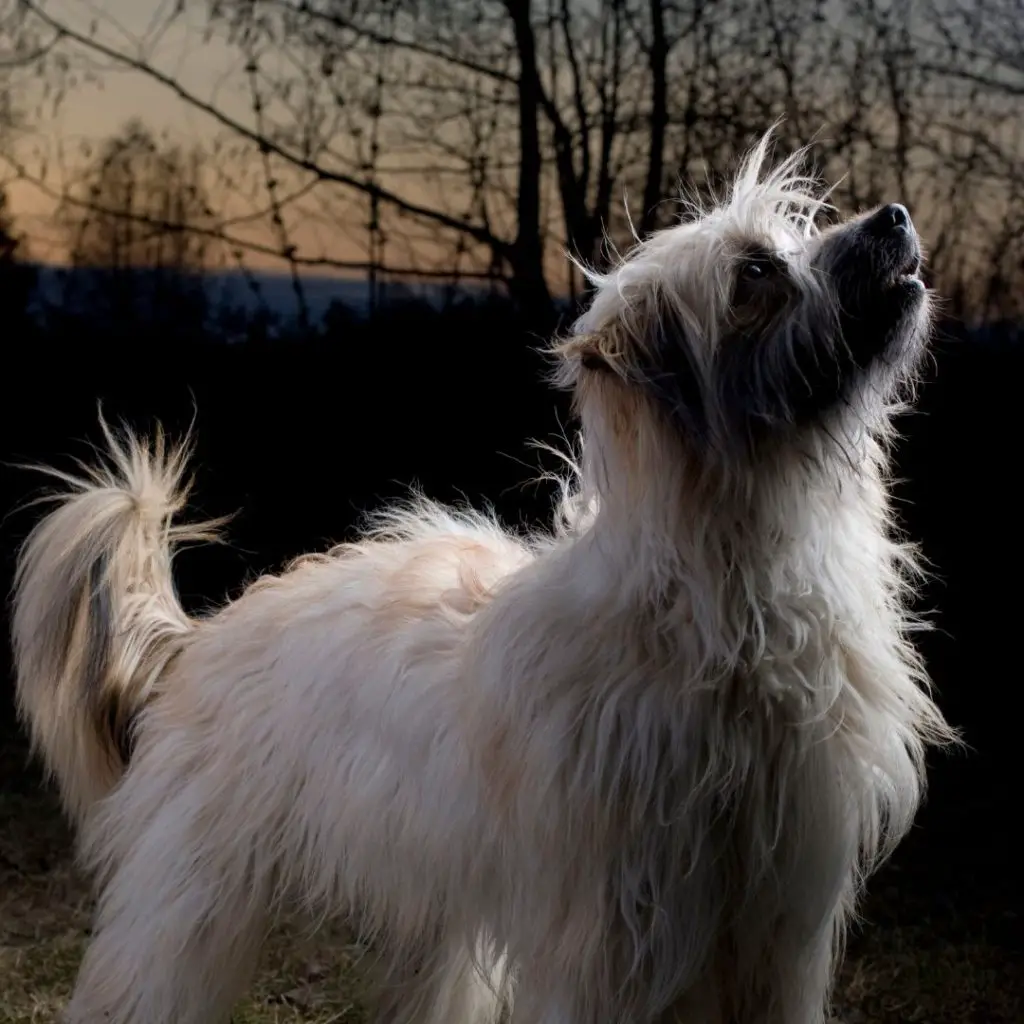
Dogs are born with superior night vision: chances are, your dog can see you in the dark even if you can’t. They have more rods or light-sensitive cells in their eyes as compared to human beings.
Dog’s eyes have a layer called tapetum lucidum, which is the key reason why your dog can see you in the dark. This layer will basically reflect the light that enters the eyes, and thus acts like a mirror. This helps your dog register you or any other object in the dark properly.
Should Dogs Sleep In Pitch Black?
Ideally, your dog’s sleeping room should be pitch black. If the area around his bed is too bright, it may result in inefficient production of a hormone called melatonin. Melatonin is sedative in nature and helps your pooch calm down, allowing him to fall asleep easier.
Inefficient melatonin production adversely affects your dog’s circadian rhythm or body clock. This may lead to unhealthy sleep patterns and exhaustion in your dear dog.
Should Puppies Sleep In Total Darkness?
Pups will fall asleep easier in a quiet, dim environment. But they do not need to sleep in total darkness. Puppies need more sleep than adult dogs, almost 18-20 hours every day. Inevitably, they will end up sleeping even when it’s light outside.
Do Dogs Get Scared To Sleep Alone?
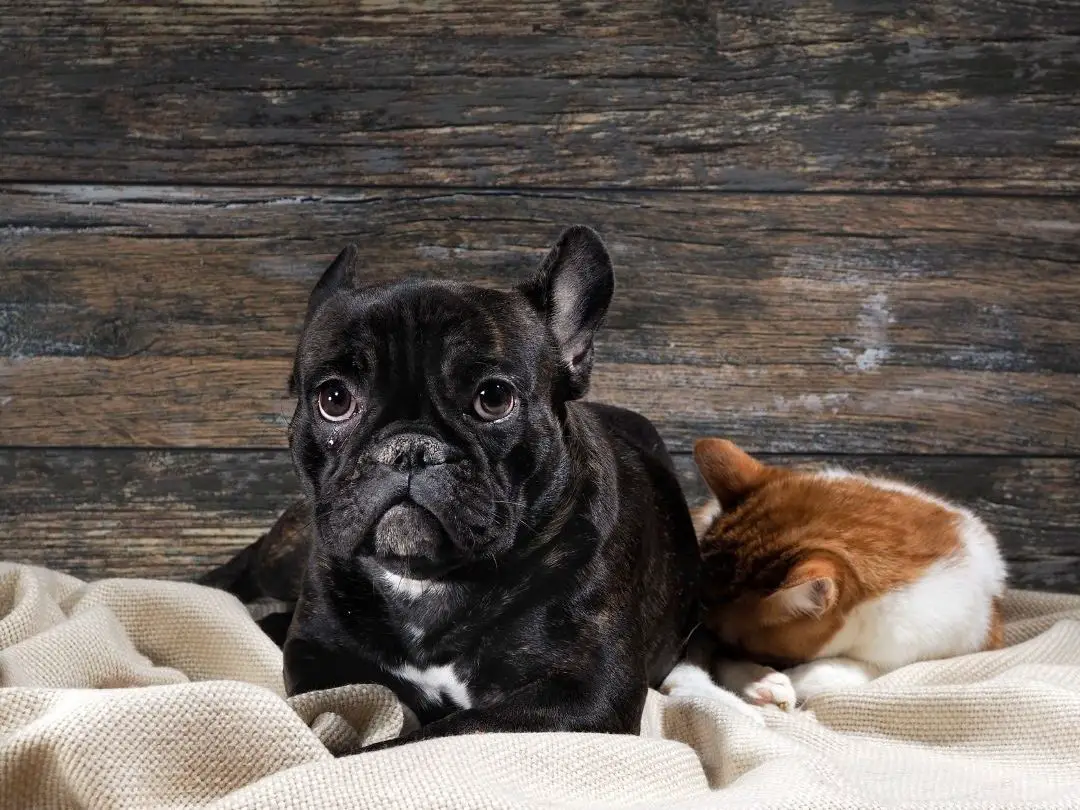
The best sleeping area varies depending on your dog’s age, personality, and past experiences. Most dogs like sleeping with their pet owners.
Young pups, who are used to sleeping with their mother or other pups, may find it harder to fall asleep alone.
If your dog is particularly attached to you, he may want to stay close to you throughout the night for a sense of security.
Perhaps your dog was confined to a small room or physically abused as a pup. In such cases, he may be afraid of sleeping alone.
Why Won’t My Dog Walk In The Dark?
Poor vision, unfamiliar noises, and unpleasant past experiences may have led your dog to associate the dark with hurt and general anxiety. He may shy away or show signs of stress if you grab a leash after sunset.
Some dog breeds like golden retrievers and border collies are extremely sound-sensitive. Many of these dogs may refuse to leave the house after dark.
Why Does My Dog Suddenly Want To Sleep Alone?
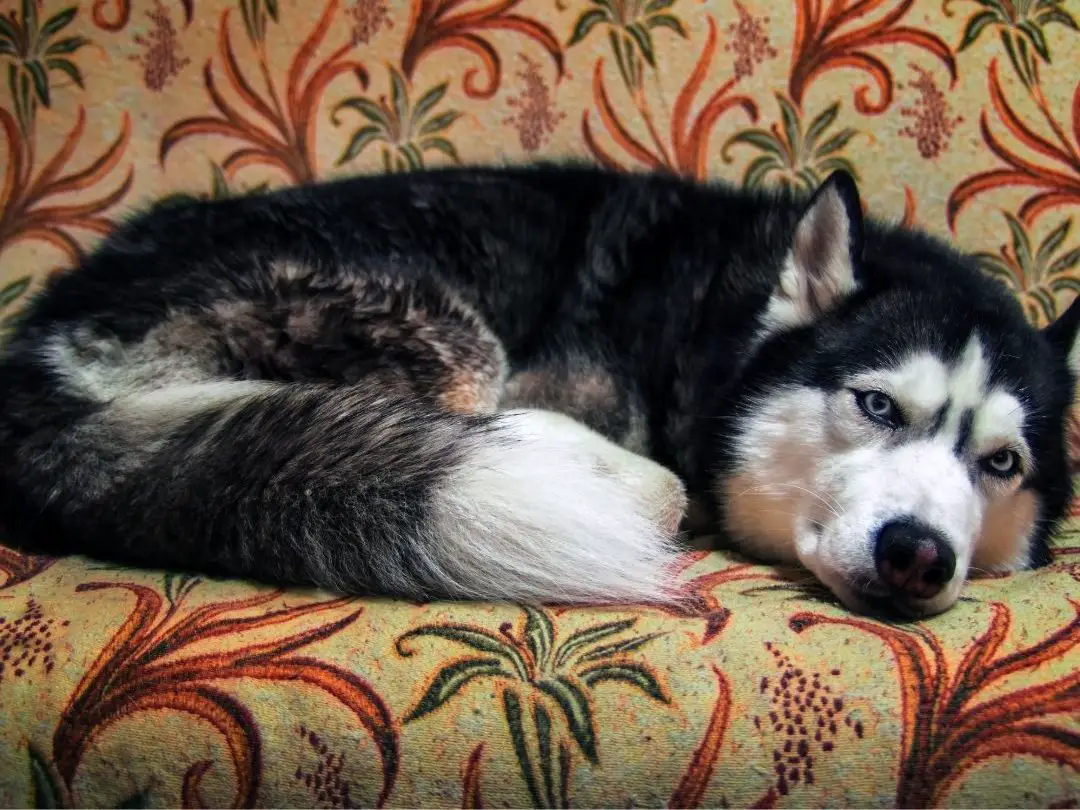
This kind of behavior usually indicates either illness or injury. If your dog suddenly wants to be left alone to sleep, he may be bothered by physical or emotional distress.
Your dog might be pushing away from you because he has injured himself and wants to be left alone to lick his wounds.
Conclusion: Are Dogs Afraid Of The Dark?
So, the answer to the question, “Are Dogs Afraid of The Dark?” is that while dogs, instinctively, are not afraid of the dark, increased barking, panting, and pacing may indicate anxiety disorders.
Today, there are effective countermeasures to help soothe your scared dog.

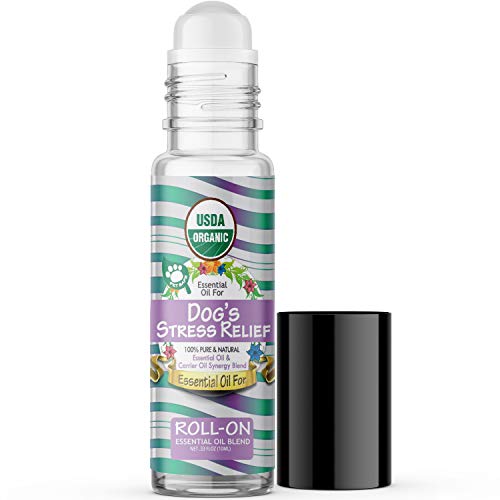
![CozyVest 3-in-1 Calming Vest Music & Aromatherapy Dog Anxiety Coat Relaxing Sound & Essential Oil Scent Treats Canine Stress Relief Fireworks Thunder Separation Shirt Jacket(Gray, M [26-40 Lbs]) CozyVest 3-in-1 Calming Vest Music & Aromatherapy Dog Anxiety Coat Relaxing Sound & Essential Oil Scent Treats Canine Stress Relief Fireworks Thunder Separation Shirt Jacket(Gray, M [26-40 Lbs])](https://m.media-amazon.com/images/I/41CqQhr1DQL._SL500_.jpg)
